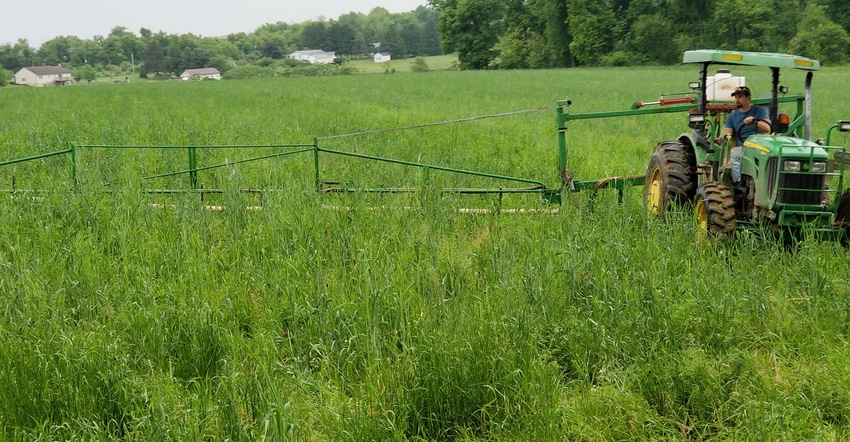October 4, 2019

As much as we all try to get cover cropping right, things don’t always turn out the way we expect. Sometimes issues arise that can be solved with a little adjusting, but other times we find ourselves dumped right into “Plan B” territory.
So, what can we do when things really go off the rails? Well, obviously each issue has its own unique challenges, and not every catastrophe can be avoided or fixed. But there is certainly a mindset that we can adopt that can put us in the right frame of mind to make the most of a bad situation.
Here are some ideas to ponder:
1. Everyone has challenges. Don’t set yourself up for failure by planning on never failing. You don’t have to be a pessimist, but just have a healthy awareness that you’ll always have to think on your feet.
All kinds of things can throw you off in farming, and cover cropping is certainly not a predictable practice. If your corn crop loses money on a given year, farmers don’t just give up and say they’ll never plant corn again.
Think more about problem solving than problem preventing.
2. Be a compulsive learner. It would be great if we could learn everything at the beginning and never have to do it again. But that would also be boring, in my opinion.
Keep learning! See what your neighbors or friends are doing; try out a few acres of something new just to see if it works.
If you’re willing to learn, then you won’t be taken by surprise when something falls through, you’ll have more knowledge to draw from and your brain will be fit for problem solving.
3. Choose good role models. It’s great to have a few “cheerleaders” in your life; people who are rooting for you and are always ready to encourage you when things get tough.
Even better is to pick some role models or mentors who are already living the principles and practices you want to follow. In the cover cropping world, this means having a mentor who is successfully doing what you want to accomplish. Ideally, these people are in your neighborhood, but that isn’t always the case.
I have mentors all over the world; farmers who inspire me and challenge me to try new things. Having some people to look up to and learn from is crucial for keeping a clear vision when challenges arise.
4. Develop a bag of tricks. Learn some tricks that others have used to solve problems and keep them in your back pocket!
For example, I bought a weed wiper from a neighbor that I never used until two years ago when we had a very wet spring. My corn came up before I had a chance to burndown the previous cover crop due to a week of rainy days. After a lot of head-scratching, out came the weed wiper!
I was able to get a lot of the work done even with my cash crop already emerged, and it was all because I had a backup plan ready.
Get out there and learn how other farmers are solving problems.
5. The Coach’s Closer. Some have said that if you have never had a failure, you are not trying hard enough. There undoubtedly is a kernel of truth to that, but then again you can’t afford to risk what you can’t lose.
Cover crop failures will occur, but if you treat them as you would your cash crops, you’ll stand a better chance of success.
Groff is a cover crop pioneer and innovator who farms in the Chesapeake Bay Watershed. Check out his website, covercropcoaching.com.
About the Author(s)
You May Also Like




